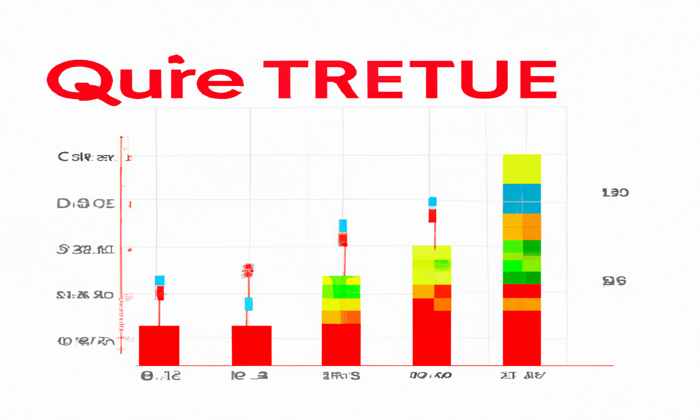The Gemini data breach has raised significant concerns as over 100,000 customers of the popular cryptocurrency exchange may find their personal information at risk. A threat actor has allegedly listed a vast collection of user data for sale on the dark web, including sensitive details like names, email addresses, phone numbers, and geographical locations. According to a report by The Dark Web Informer, this breach highlights the increasing prevalence of cybersecurity breaches that target cryptocurrency platforms, drawing parallels with recent incidents like the Binance data leak. With personal data theft becoming a severe concern for digital asset users, the Gemini situation serves as a crucial reminder of the ongoing dark web threats that pose dangers to individual security. As the investigation unfolds, it remains uncertain whether this breach is rooted in Gemini’s systems or exploits vulnerabilities elsewhere, further emphasizing the necessity for enhanced cybersecurity measures in the crypto space.
The recent incident involving the breach of Gemini’s user data has brought attention to the vulnerabilities faced by cryptocurrency exchanges. This alarming situation reflects ongoing issues of user data exposure, where hackers exploit weaknesses to access private information for malicious purposes. This trend is indicative of larger threats within the realm of digital finance, characterized by numerous instances of personal data theft across platforms. As exchanges like Gemini and Binance contend with security challenges, the implications of these breaches extend beyond individual users to impact public trust in the cryptocurrency industry. Understanding the implications of such cyberattacks is vital as they signify a growing need for robust protective measures against evolving threats in the online financial landscape.
Understanding the Gemini Data Breach and Its Impact
The recent Gemini data breach has raised serious concerns among cryptocurrency users, as over 100,000 individuals may have had their personal information compromised. The threat actor, under the alias ‘AKM69,’ has reportedly listed sensitive data for sale on the dark web, a space notorious for cybercriminal activities. This incident highlights the vulnerabilities that exist within cryptocurrency exchanges and the potential for significant personal data theft. Users are urged to remain vigilant and monitor their accounts closely for any signs of unauthorized access.
In light of this breach, the broader implications for the cryptocurrency landscape cannot be understated. Such cybersecurity breaches threaten not only individual users but also the overall trustworthiness of exchanges like Gemini. As more customers become aware of the risks associated with storing their data online, the demand for robust security measures will inevitably increase. Exchanges must prioritize securing their systems and educate users on protective measures to mitigate risks associated with emerging dark web threats.
Dark Web Threats: The Growing Concern for Cryptocurrencies
The dark web remains a hotbed for malicious actors targeting individuals and organizations alike, particularly in the realm of cryptocurrency. As recent reports on the Gemini and Binance breaches demonstrate, personal data theft has become alarmingly common, with users on these platforms finding themselves at risk. The compromised information, which may include names, emails, and even phone numbers, can be used for fraudulent activities, putting affected users in precarious situations.
Moreover, with the rise of cryptocurrency’s popularity, the frequency of these dark web threats is expected to escalate. Cybersecurity experts emphasize the need for exchanges to implement advanced security protocols to safeguard user data. Continuous monitoring for breaches and providing users with education on recognizing phishing attempts can be crucial steps in combatting the threats posed by cybercriminals lurking on the dark web.
To counter these challenges, it is advisable for users to adopt proactive measures, such as employing strong, unique passwords and enabling two-factor authentication. Staying informed about potential scams and security breaches is paramount in today’s digital age.
Cybersecurity Breaches in Cryptocurrency Exchanges
Cybersecurity breaches have become increasingly commonplace in the cryptocurrency sector, with notable incidents involving exchanges such as Gemini and Binance. The Gemini breach, wherein a trove of user data surfaced on the dark web, mirrors previous breaches experienced by other platforms. This growing trend points to a significant vulnerability in the infrastructure of many cryptocurrency exchanges, often attributed to insufficient security measures and the exploitation of user negligence.
Following the Binance data leak, cybersecurity experts have voiced concerns that compromised user devices and phishing attacks play a significant role in enabling such breaches. Many users may unknowingly contribute to security failures by engaging in risky online behavior, such as clicking on suspicious links. Education and awareness about these threats are essential to empower users and mitigate the potential damage caused by such cybersecurity breaches.
Protecting Personal Data in the Wake of Gemini and Binance Leaks
In the aftermath of the Gemini and Binance data leaks, users are faced with the critical task of protecting their personal data. One of the primary steps individuals can implement is updating their passwords and enabling two-factor authentication wherever possible. These security measures significantly reduce the risk of unauthorized access to their accounts, thus safeguarding their investments and sensitive information.
Furthermore, individuals should remain cautious about sharing personal details online and should regularly review their security settings on cryptocurrency exchanges. It is also advisable to utilize password managers that can generate and store complex passwords securely. By taking these proactive steps, users can better protect themselves against potential data breaches and the malevolent entities that operate within the dark web.
The Future of Cryptocurrency Exchange Security
As the cryptocurrency market continues to evolve, the need for improved security measures within exchanges becomes paramount. The Gemini data breach serves as a crucial wake-up call for both exchanges and users, emphasizing the need for a shift in approach to cybersecurity. Future strategies should encompass advanced encryption methods, regular security audits, and a heightened focus on user education regarding potential threats.
Moreover, exchanges must proactively engage with cybersecurity experts to develop cutting-edge solutions that can detect and thwart potential breaches before they occur. The integration of artificial intelligence and machine learning technologies into security protocols has the potential to revolutionize how exchanges protect user data, making it increasingly difficult for cybercriminals to succeed in their malicious endeavors.
Lessons Learned from Recent Breaches
The recent breaches affecting both Gemini and Binance offer vital lessons for the entire cryptocurrency sector. One of the primary takeaways is the importance of cybersecurity resilience and the need for exchanges to adopt a more proactive stance towards potential threats. Understanding how personal data theft occurs—be it through external systems or user negligence—can significantly sharpen the focus on developing more robust defense mechanisms.
Another crucial lesson is the need for transparency in communication with users regarding security incidents. Both Gemini and Binance have faced criticism for their lack of public statements following these breaches, leaving users in the dark. Establishing clear lines of communication, particularly in crisis situations, can empower users and build trust in the exchange’s commitment to safeguarding their data.
Cybersecurity Best Practices for Crypto Users
To navigate the ever-evolving landscape of cryptocurrency safely, users must adopt cybersecurity best practices that significantly reduce their risk exposure. First and foremost, utilizing strong, unique passwords for each account can significantly lessen the chances of unauthorized access. Users should also consider regularly updating their passwords and using password managers to keep track of them securely.
Additionally, being vigilant about account activity and monitoring financial transactions closely can help users detect any unusual behavior early on. In the event of any suspicious activities, users should promptly change their passwords and report the issue to the exchange. By implementing these best practices, users can better protect themselves against potential attacks and personal data theft in the ever-changing cryptocurrency landscape.
The Role of User Education in Preventing Cyber Threats
User education plays a pivotal role in the fight against cyber threats, especially in the cryptocurrency domain, where the stakes are often high. Many incidents of data breaches arise from user inexperience or lack of awareness about potential dangers. Therefore, exchanges must prioritize educating their users about proper security measures, such as recognizing phishing attempts and avoiding suspicious links.
In addition, providing resources that outline clear protocols for dealing with potential breaches can empower users to act decisively in protecting their information. Regular updates and security workshops offered by exchanges can further enhance user knowledge, fostering a culture of cybersecurity awareness that can dramatically reduce the likelihood of attacks.
Conclusion: Navigating the Future of Cryptocurrency Security
As the cryptocurrency market continues to face significant challenges regarding data security, it is essential for users and exchanges alike to remain vigilant and proactive. The Gemini data breach serves as a sobering reminder of the ever-present cyber threats lurking in the background. Moving forward, users must take personal responsibility for their security measures while expecting exchanges to fortify their defenses adequately.
In conclusion, a collaborative effort between cryptocurrency users and exchange platforms is vital. By prioritizing awareness, education, and the adoption of innovative security technologies, both parties can work together to create a safer cryptocurrency ecosystem that minimizes risks associated with personal data theft and dark web threats.
Frequently Asked Questions
What happened in the recent Gemini data breach involving user information?
The recent Gemini data breach has resulted in personal information of over 100,000 customers being listed for sale on the dark web. The compromised data includes names, email addresses, phone numbers, and location details. The breach raises concerns about personal data theft and its implications.
How did the Gemini cryptocurrency exchange data breach occur?
It remains unclear whether the Gemini data breach originated from the exchange’s own systems or from external sources such as phishing attacks or compromised user devices. Security vulnerabilities in any of these areas could lead to significant cybersecurity breaches.
What type of personal data was exposed in the Gemini data breach?
The Gemini data breach compromised a trove of personal data, which includes users’ full names, email addresses, phone numbers, and locations, specifically affecting around 100,000 records mostly from the United States.
Are there risks for users affected by the Gemini cryptocurrency exchange data breach?
Yes, users affected by the Gemini data breach are at risk of personal data theft, which could lead to identity theft, fraudulent activities, or targeted phishing attacks, especially since such data is being sold on the dark web.
How does the Gemini data breach compare to the recent Binance data leak?
Both the Gemini data breach and the Binance data leak highlight serious concerns about data security within cryptocurrency exchanges. The Binance incident involved over 132,700 lines of user data, while the Gemini breach affects about 100,000 users. Each incident emphasizes the ongoing threats posed by dark web actors.
What steps can users take to protect themselves after the Gemini data breach?
Following the Gemini data breach, users should monitor their financial accounts, change passwords, enable two-factor authentication, and remain vigilant for phishing attempts, especially those linked to both Gemini and similar cryptocurrency exchanges.
What are the potential implications of the Gemini data breach for cryptocurrency exchanges?
The Gemini data breach could significantly impact user trust in cryptocurrency exchanges, prompting discussions on enhanced cybersecurity measures. As incidents of data leaks become more frequent, exchanges may need to strengthen their defenses against dark web threats.
Is Gemini responding to the recent data breach?
As of now, Gemini has not publicly commented on the data breach. Users and stakeholders are awaiting an official response to clarify the situation and the measures being taken.
What preventive measures are being recommended after the Gemini data breach?
To prevent similar situations, it is recommended that cryptocurrency exchanges invest in robust cybersecurity measures, educate users on safe online practices, and implement strict monitoring systems to detect potential breaches.
Could the Gemini data breach lead to further investigations into cryptocurrency exchanges?
Yes, the Gemini data breach may prompt further investigations into the cybersecurity practices of not just Gemini, but also other cryptocurrency exchanges, especially following the recent Binance data leak, as regulatory bodies may seek to enhance consumer protection.
| Key Point | Details |
|---|---|
| Gemini Data Breach | Over 100,000 customer records may have been compromised. |
| Personal Data Leaked | Data includes names, emails, phone numbers, and locations. |
| Threat Actor | Data was listed by a user named ‘AKM69’ on the dark web. |
| Origins of the Breach | Unclear if breach is from Gemini’s systems or external sources. |
| Related Incidents | A similar data leak occurred with Binance involving 132,700 records. |
Summary
The Gemini data breach has raised substantial concerns among users as over 100,000 customer records, including sensitive personal information, have reportedly been compromised and listed for sale on the dark web. With the prevalence of cyber threats targeting cryptocurrency exchanges, it emphasizes the urgent need for enhanced security measures both within platforms and from users to prevent future vulnerabilities.
The recent Gemini data breach has left over 100,000 customers of the Gemini cryptocurrency exchange grappling with concerns about personal data theft. Reports indicate that a threat actor has made a significant cache of personal user data available for sale on the dark web, raising serious alarms in the cybersecurity community. This breach, which includes sensitive information such as full names, emails, phone numbers, and locations, underscores the increasing danger posed by cybercriminal activities. In recent months, similar incidents have occurred, notably with the Binance data leak, where credentials were allegedly posted for sale, emphasizing the persistent threat of cybersecurity breaches within the cryptocurrency space. As investigations into the origins of the breach unfold, it is clear that the prevalence of dark web threats continues to evolve, posing risks not just to individual users but also to the integrity of cryptocurrency exchanges.
In light of the alarming events surrounding the Gemini cryptocurrency exchange, it’s crucial to understand the broader implications of the recent personal data theft. The emergence of security incidents that compromise sensitive customer information illustrates an ongoing struggle against online threats targeting digital assets. With data breaches becoming increasingly common, exchanges like Gemini and Binance must bolster their defenses to safeguard against cyber hazards. Not only do these occurrences expose users to potential fraud and identity theft, but they also shake the trust foundation between crypto platforms and their customers. As we navigate this complex landscape of risk and security, awareness of the mechanisms behind these breaches is essential for both users and stakeholders in the cryptocurrency industry.














